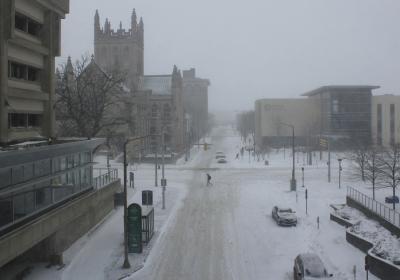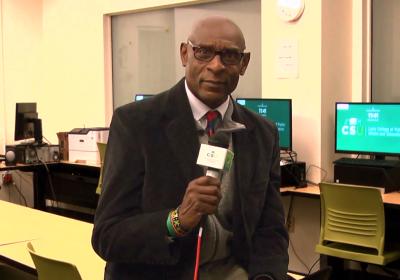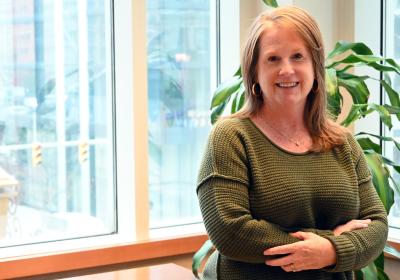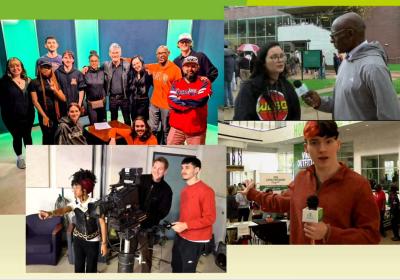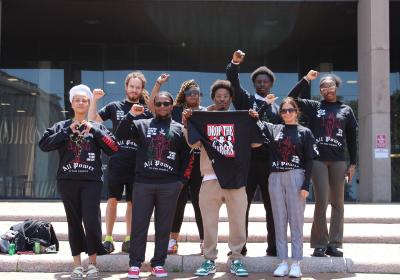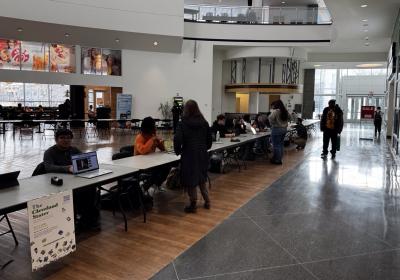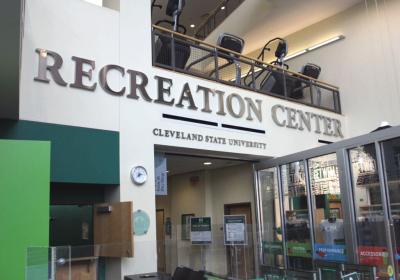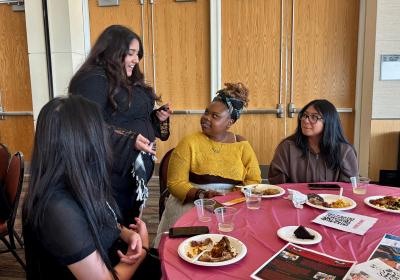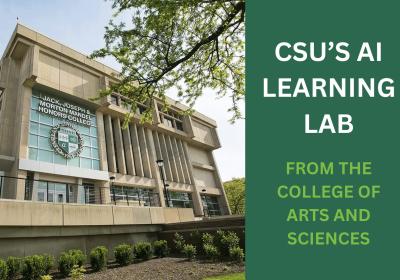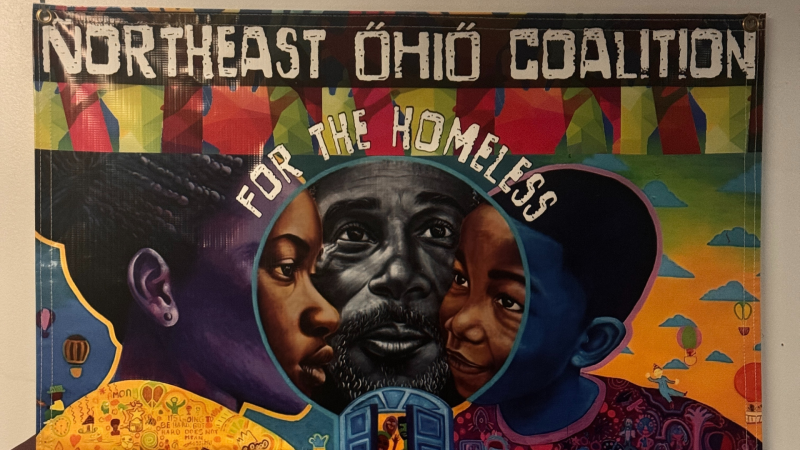
The struggle for stable housing - local impact, student concerns, government choices
"I've had mothers decide, 'I'm going to have to call CPS on myself because I have nowhere to go, and my kids can't be out here like this,'" Josiah Quarels said.
Josiah Quarels is the Director of Organizing and Advocacy at the Northeast Ohio Coalition for the Homeless (NEOCH). He was recounting a grueling experience from his time working with recently evicted and homeless people around Cleveland.
Quarels wakes up every day with the drive to build communities, find resources, and push for supportive legislation for one of Northeast Ohio’s most vulnerable communities. He spends his day talking with homeless people, fostering one-of-a-kind human connections that would otherwise walk past them on the street avoiding eye contact.
Quarels’ call for intersectionality within the work is clear when integrating various organizations across Cleveland to combat root issues of homelessness. The Cleveland Palestine Advocacy Community, a coalition of organizations focused on Palestine (CPAC), has been a major catalyst for broadcasting NEOCH's work, standing hand-in-hand in solidarity.
“I want to push back on the idea that all of these issues are not interconnected. We live in an interconnected world,” Quarels, 43, said. “If you keep pulling at the thread things are going to unravel.”
Cleveland’s homeless population is rising as families, single mothers, the elderly, and others, including some students struggle to fight the rises in rent and stagnant wages. Community leaders, organizers and student organizers in the area are calling for assistance from the Cuyahoga County government to look towards their own before branching out to foreign matters.
In Ohio, the homeless rate increased by 3% in 2024. On average, about 5,000 people in Cuyahoga county alone experience some degree of homelessness every year.
Members from NEOCH, an organization combating the roots of homelessness have been attending Cuyahoga County council meetings regularly along with CPAC, to speak to council members in the form of public comment, calling for greater investment at home and divestment abroad.
“We’re not asking you (Cuyahoga Council) to make international policy, we’re actually trying to have you guys remove yourselves from international policy so you don't have to be culpable for what is done with the funds that you have no control over,” Quarrels said during public comment on Jan. 28, 2025.
Alongside community members, students have also taken a stand to support their communities.
Cleveland State University's Students for Justice in Palestine held a letter writing event Jan. 28 urging council members to divest from foreign bonds, including a $16 million Israel bond despite the war on Gaza and attacks in the Occupied West Bank, while providing alternative avenues for the county to invest in its homeless population and vulnerable communities. $3 million of that bond will mature March 1, 2025 and could be reinvested unless the Cuyahoga Council's Investment Advisory Committee (IAC) votes otherwise.
“Help our schools, our people and our streets because these are your students and we are your kids' future – which was taken away from the children in Gaza,” one letter writer said at the event.
“My heart aches when I walk past the homeless people on the street knowing I’m one paycheck away from sitting right next to them,” another student said.
The student struggle doesn't just end here. College students are, unsurprisingly, struggling to stay awake during class due to homelessness or working multiple jobs to keep themselves afloat.
Shereen Naser Ph.D., an Associate Professor of Psychology at Cleveland State University, details behaviors, red flags and signals of students experiencing stress in their lives outside class.
“If they are doing well and then they start to drop off, coming to school and sleeping a lot in their classes, if they're having a hard time with communication – those are all things that make me worry,” Naser said. “It would be helpful if there was training for professors to help them know what to look for while also giving follow up responses and actions.”
Dr. Naser also speaks on the cognitive effects. Students struggling to fulfill their basic needs have a hard time keeping up with schooling.
“The ability for students to access the part of their brain that lets them take information in, and then to process that information, is going to be hindered.”
To counteract this, Cleveland State offers a number of resources to students facing insecurity. Lift up Vikes! is part of an initiative taken by CSU that according to their website, “offers a convenient, dignified and compassionate process through which CSU students are connected to resources that supplement nutrition and other basic human needs as they strive to earn a college degree.”
Community organizations in the city provide services for homeless people. NEOCH offers resources for the homeless or people facing housing insecurity. Through the Cleveland branch of the organization Party for Socialism and Liberation (PSL) the Cleveland Liberation Center offers emergency response programs during crises to both house and feed neighbors. The center often partners with New Era Cleveland to engage the community in frequent food and goods distribution.
If you or someone you know is experiencing homelessness or housing insecurity, these community resources are available to you.


